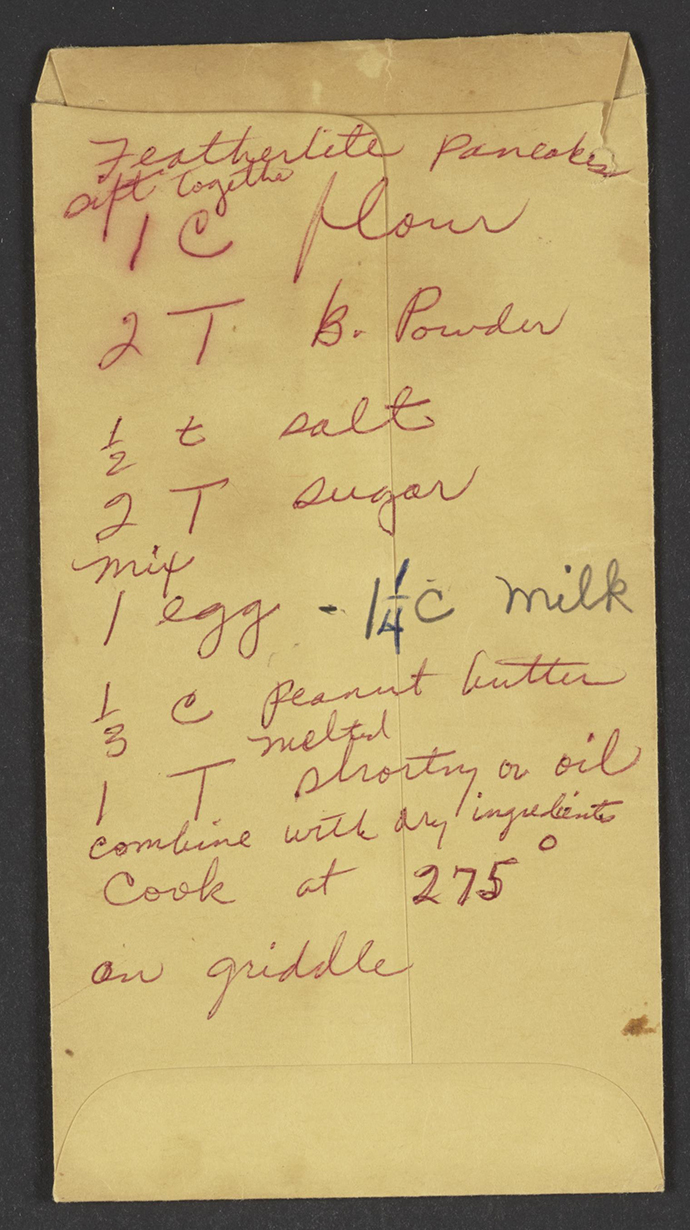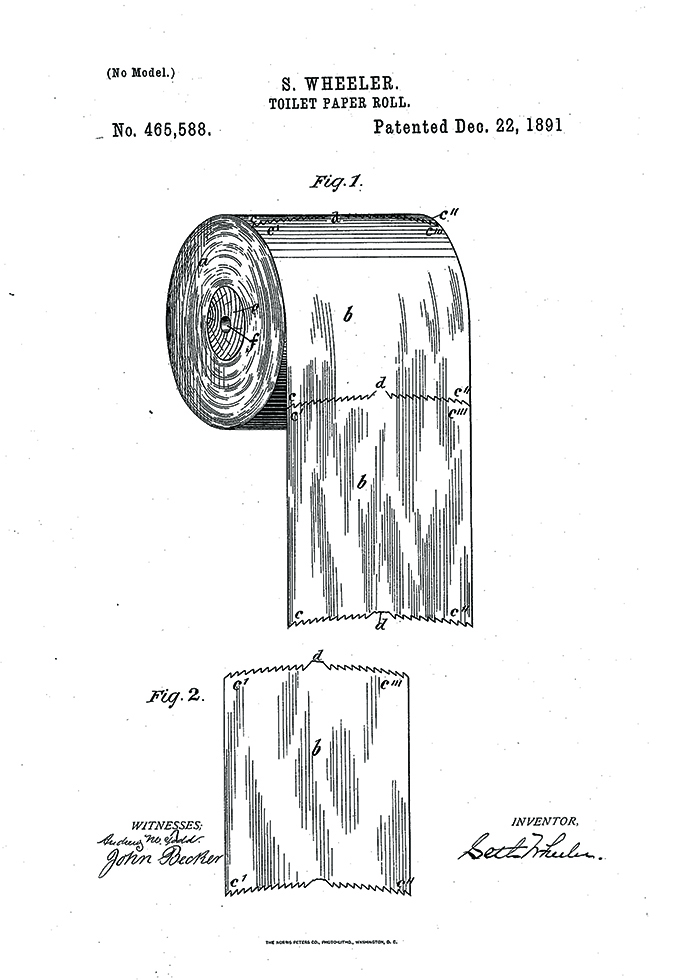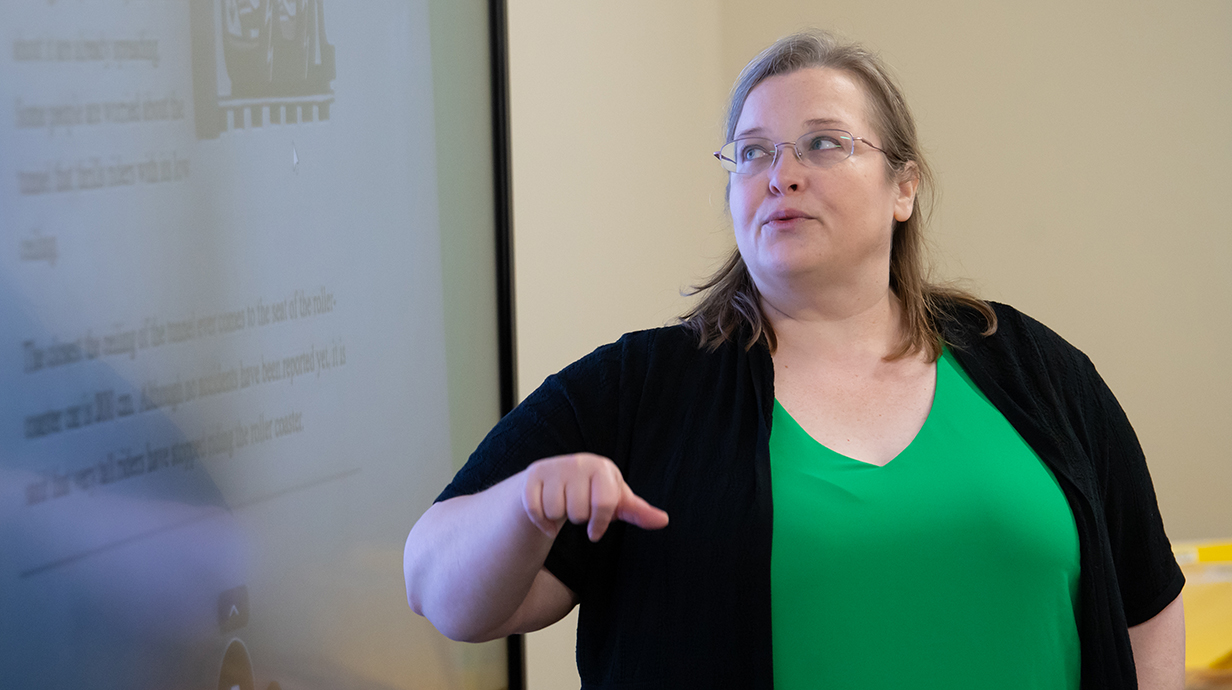Ole Miss Program to Grow STEM Teacher Leaders Across State
Library of Congress grant expands program focused on teaching with primary sources

OXFORD, Miss. – The University of Mississippi's Center for Mathematics and Science Education has selected four K-12 educators for its new teacher leadership initiative aimed at engaging more students in science, technology, engineering and mathematics fields.
Funded by a Library of Congress grant, the four STEM Teaching with Embedded Primary Sources teacher leaders will help K-12 educators incorporate primary sources – original documents and artifacts that were created at the time under study – into STEM education.

Teaching math using Rosa Parks' peanut butter pancake recipe or using the original toilet paper roll patent sketch from the late 1800s to squash the "over versus under" debate are two of the countless ways STEM teachers are engaging students with primary sources.
"Primary sources are a nice way to help students connect math and science content to other academic subjects," said Julie James, CMSE assistant director of professional learning.
"If students are interested in history or if they're interested in writing, then we're bringing the STEM content into those other areas of interest."
The STEPS Teacher Leaders program, also known as 2STEPS, builds on the success of the center's previous Teaching with Primary Sources projects, which began in 2020.
The center selected the following Mississippi educators for the program based on their contributions to previous program phases and commitment to educational excellence:
- Kimberlin Foster, Warren Central Junior High School, Vicksburg
- Patricia Irby, Chickasaw Elementary School, Olive Branch
- Faith Major, Denman Junior High School, McComb
- Ashley Ridings, Belle Shivers Middle School, Aberdeen.
Each teacher leader is developing comprehensive STEM lessons that use Library of Congress primary sources.
Those lessons will be tested in their classrooms, reviewed by the 2STEPS team and published on the Teaching with Primary Sources Consortium Created Materials website, which is accessible to educators worldwide.

The original toilet paper roll patent sketch is another example of a primary source material that can be used to teach STEM concepts. Photo courtesy Library of Congress
"As one of the first teacher leaders, I'm most excited about the opportunity to shape the future of STEM education in our region," said Foster, a science teacher.
"I look forward to connecting with passionate educators, sharing insights and working together to inspire our students. Being part of this pioneering group is a thrilling chance to influence positive change."
The Ole Miss center offers STEPS training workshops, where Mississippi teachers can learn more about the Library of Congress' vast primary sources database, premade lesson units and how to create their own. Bethany LaValley, the center's coordinator of professional development, leads these sessions.
With LaValley, the quartet of teachers will plan and put on STEPS workshops in their respective areas of the state, galvanizing education across the Magnolia State.
"These workshops provide valuable resources, enhance teaching strategies and create a collaborative environment that encourages professional growth," Foster said. "By equipping teachers with effective tools and methods, we can ultimately enrich the learning experience for students."
The CMSE prioritized partnering with historical and cultural venues, such as the Oren Dunn City Museum in Tupelo and the Museum of the Mississippi Delta in Greenwood, to enhance the workshop experience and potentially show attendees how to bring lessons to life using local primary sources.
Creating more lessons with Mississippi primary sources and highlighting its rich industrial and agricultural history are goals of the initiative, LaValley said.

Bethany LaValley, coordinator of professional development at the Center for Mathematics and Science Education, leads the STEPS and teacher leader programs. She will help the four teacher leaders create STEM lesson plans that use primary sources. Photo by Kevin Bain/Ole Miss Digital Imaging Services
"If teachers recognize that these local resources are there and expose them to the students, then we're hoping that will help the students take pride in their community and improve the state's retention of talent, especially in rural areas," she said.
"I'm really excited about the possibility of building these Mississippi-focused primary source sets and building Mississippi-focused STEM lessons that elevate our state's reputation and inform people about Mississippi's investments in the space and defense industries, for example."
LaValley and the teacher leaders plan to propose and lead a session at next year's Mississippi Science Teaching Association annual conference.
"I hope to show teachers how easy it is to look up and use the readily available primary resources that the Library of Congress provides," said Irby, a second-grade teacher. "I am very excited to be chosen to represent my state in this project."
Information about upcoming workshops is available on the CMSE website.
Top: Faith Major (left), a teacher at Denman Junior High School in McComb, and Patricia Irby, who teaches at Chickasaw Elementary School in Olive Branch, attend the 2024 Mississippi Science Teaching Association Annual Conference in Biloxi. Both participants in the Center for Mathematics and Science Education's STEPS Teacher Leaders program, they are proposing sessions to lead at next year’s conference. Submitted photo
By
Marvis Herring
Campus
Office, Department or Center
Published
January 15, 2025
